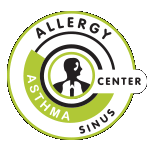Spring in Georgia
Festivals, carnivals, and open-air markets. Planting gardens and flowerbeds, taking road trips, going fishing and pushing the kids outdoor into the fresh air. Spring in Georgia gives us plenty to be grateful for, but spring allergies can keep us from enjoying any of it.
The arrival of tree pollens in Georgia starts early. Beginning in late February, the allergy season can stretch until June when grass and weed pollen add to the pollen counts. All of this means the pleasure you take in the perfect temperatures and weather for outdoor activities can be seriously curtailed. But we can help! First, though, let’s take a look at common spring allergy triggers and symptoms.
Spring Tree Pollen
Here in Georgia we are blessed by an abundance of trees, most of which produce an abundance of pollen as well. Our major tree triggers for allergies are hickory, oak, walnut, maple, and ash. Common allergic symptoms to these trees include:
- Stuffy nose
- Sinus pressure
- Runny nose
- Itchy, watery eyes
- Loss of taste or smell
Oral Allergy Syndrome
It’s important to note, too, that some tree allergies can trigger an allergic reaction to certain foods. This cross-reactivity happens because of similarities in the pollen and proteins, but all you really need to know is that if your mouth or face begin to itch or swell during tree pollen season, you might have oral allergy syndrome (OAS). Typical foods causing these reactions include apples and nuts. If your reactions to certain foods worsen, please schedule an appointment with us as soon as possible and avoid that particular food until you can be seen.
Let our allergists help.
At The Allergy, Asthma & Sinus Center, our board-certified allergists can help you find relief and get back to enjoying the outdoors regardless of the season or the severity of your allergic reactions. Typically, we start with a physical history of your symptoms, which may or may not be followed by a skin test. Skin tests are very important because they allow us to know specifically what’s causing your symptoms, and once we know the triggers, we know how to fight against them. You’ll then work with your allergist to decide what treatment is best for you! Often that treatment includes immunotherapy, or allergy shots, which are the closest thing to a cure. Immunotherapy desensitizes your immune system to your allergic triggers. Once your immune system stops reacting, you stop sneezing, and that’s a win – especially since it’s all done without unwanted side effects from over-the-counter drugs. Plus, allergy shots are the best and only option for long-lasting, long-term relief.
If you notice your spring getting hijacked by allergies, take back control. Schedule an appointment with our allergy experts and enjoy spring with all its outdoor activities this year.





